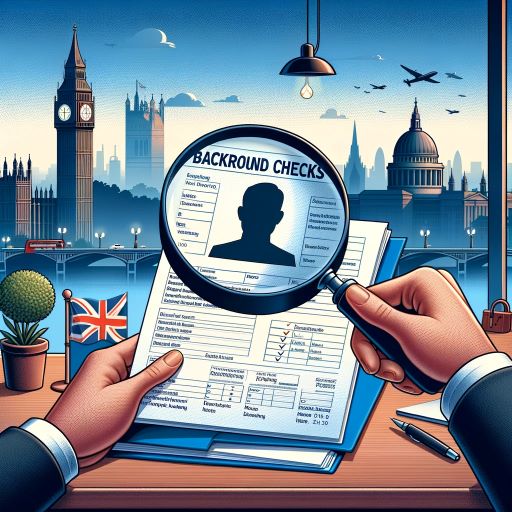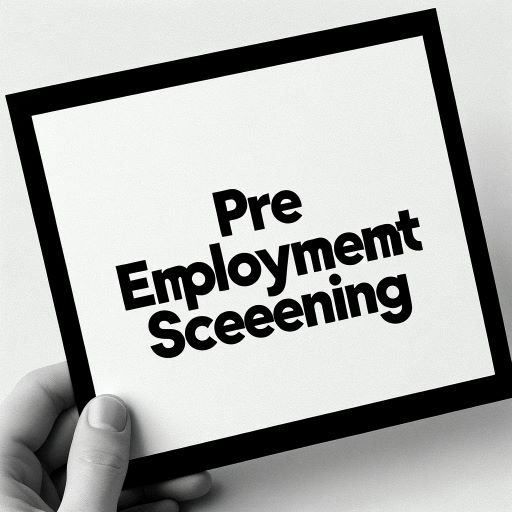

For Standard and Enhanced DBS checks, specific documentation requirements vary based on the role's nature. It's worth noting that Basic DBS checks can also be requested by individuals for selfverification purposes.
Importantly, DBS checks don't have any impact on an individual's credit score as they're distinct from credit reports. To validate the authenticity of DBS certificates, employers must take steps to verify their validity.
What Is a DBS Check Before Job Offer? Before a job offer, a DBS check helps you identify relevant criminal offenses in an individual's record. It assists you in determining the suitability and safety of candidates for specific roles.
Different levels of DBS checks provide varying degrees of information. The process typically takes 114 days for Basic, Standard, and Enhanced checks. Verify the DBS certificate authenticity before making a job offer based on the check results.
What Is the Role of a DBS Check? When considering the role of a DBS check, it's important to understand its significance in evaluating individuals' criminal records. This process aids in evaluating their suitability and safety for specific roles, especially those involving vulnerable groups.
Different DBS check levels offer varying insights into an individual's background. Enhanced checks are pivotal for positions with children or vulnerable adults to guarantee safety. Verifying the legitimacy of the DBS certificate is crucial for accurate information.
In the UK, the duration of pre-employment screening checks can vary significantly depending on the type and depth of the checks being conducted, as well as the industry and specific job role requirements. Generally, basic checks, such as identity verification and employment history, can be completed within a few days to a week. More comprehensive checks, including criminal record checks (DBS checks), credit history, and higher-level security clearances, may take longer.
An employee background check can encompass a wide range of verifications and screenings to assess a candidate's history and suitability for a position. The specific elements included in a background check may vary depending on the job, the industry, and the employer's requirements. Common components of an employee background check include:
Identity Verification: Confirms the candidate's identity through government-issued documents like passports or driver's licenses.
Employment History Verification: Checks the candidate's previous employment, including positions held, dates of employment, reasons for leaving, and rehire eligibility.
Education Verification: Confirms the candidate's educational degrees, diplomas, and certificates from colleges, universities, and other educational institutions.
Criminal Record Check: Searches for any criminal convictions, cautions, reprimands, or warnings. In some countries, this is known as a Disclosure and Barring Service (DBS) check in the UK or a criminal background check in the US.
Credit History Check: Reviews the candidate's credit history, which can be relevant for positions involving financial responsibilities. This check typically includes looking at credit scores, outstanding debts, bankruptcies, and financial mismanagement.
Reference Checks: Involves contacting previous employers, colleagues, or academic references to gain insights into the candidate's work ethic, abilities, and behavior.
Why Do Employers Ask for DBS Check? When employers request DBS checks, they aim to guarantee the safety and suitability of potential hires. By reviewing criminal records, employers can make informed decisions, especially for roles involving vulnerable groups.
DBS checks help mitigate risks, comply with regulations, and create a secure working environment.mployers seek this information to protect clients, staff, and their reputation. Trust and safety are paramount, making DBS checks an essential part of the recruitment process.
What Is a Basic DBS Check for Employers? A Basic DBS check for employers is the lowest level of criminal record check available. It shows unspent convictions and conditional cautions on the Police National Computer. Commonly used for roles not involving vulnerable groups, employers can request Basic DBS checks to review a candidate's criminal history. These checks can be done online and typically take 12 days to process. They help employers assess an individual's background before making hiring decisions.

To sum up, embracing the role of DBS checks in preemployment screening is essential for ensuring the safety and suitability of candidates in roles involving vulnerable populations or requiring a high level of trust.
By conducting thorough DBS checks, employers can manage risks, adhere to regulatory standards, and create a secure work environment for their team. Prioritizing preemployment screening through DBS checks isn't only a legal obligation but also a proactive step towards safeguarding the wellbeing of employees.
Preemployment screening is crucial because it serves as a reliable method for companies in any industry to refine their hiring processes. This practice of vetting candidates, including those from key suppliers, has become a norm for organizations of all sizes.
In the current competitive job landscape, the temptation for candidates to exaggerate their work history and educational achievements or omit negative details is higher than ever. Studies generally show that between 50% to 75% of all resumes or applications submitted by job seekers contain inaccuracies. While some misrepresentations may stem from benign intentions, like enhancing a resume or slightly embellishing academic qualifications, others may have more deceptive motives.
The screening process, albeit timeintensive and administratively demanding, is vital every single time to safeguard your company against various risks, regardless of how minimal they might seem. Neglecting to verify a candidate's credentials can lead to several issues, including unsuitability for the job, poor performance, and legal noncompliance risks.
In extreme cases, the consequences of hiring an inappropriate candidate could expose your business to:

• Employee theft
• Hiring individuals unauthorized to work in the UK
• Financial burdens from recruiting and training unfit candidates
• Damage to reputation
• Legal repercussions
• Increased absenteeism
